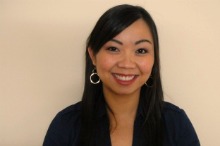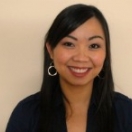

It is a great honor to be selected as a "Champion of Change" through the White House Initiative on Asian Americans and Pacific Islanders. As a doctoral student, studying to be a clinical psychologist, I would like to take this opportunity to continue the dialogue about reducing the stigma associated with mental health concerns. Generally, when someone announces that he or she has been diagnosed with cancer or another health condition, that person is met with sympathy and concern. Yet, if the same person proclaims that he or she has a mental illness such as schizophrenia, the audience may tense up and eyes start to wander about uncomfortably. That person often ends up feeling ashamed, confused and loneley, without comfort and unwavering support from loved ones. I believe the stigma associated with mental health diagnoses and with seeking service is acutely profound in the Asian American and Pacific Islander (AAPI) community.
Everyone has a story to share. Once we start sharing our stories with one another, we may find that we have more in common that we thought. We may realize that we are not alone and that we are a part of a community. Our stories are personal, and mine includes my family. When I recently asked my father what made it difficult for him to talk about mental illness with me, he responded that it was because he could not see “it.” He stated that if I had a pimple or a health condition, he could see it visually or through test results. With cyclothymia, a mood disorder, my father said it was “in my head,” and he felt powerless to help me. He said that by not talking about it, he had hoped that it would go away in time. Has it gone away? I do not know. I do know, however, that I am successfully going through my doctoral program, advocating for mental health parity at conferences and volunteering at a program called Standing Against Global Exploitation Project (SAGE), which intervenes in the exploitation of women. I am also a dedicated volunteer at the Richmond Area Multi-Services (RAMS, Inc), a multi-ethnic, multilingual community mental health program, and Santa Clara County’s Ethnic and Cultural Community Advisory Committees (ECCAC). I may not have an ongoing condition of cyclothymia, but even if I do, it is only one of my many life experiences. It does not own me or define who I am.
As a consumer and a provider of mental health services, I am driven to reduce this stigma, especially within the AAPI community, and to enhance the quality of care and cultural sensitivity of all mental health services. Although improvements have been made in the mental health field, more work lies ahead. One crucial need is for more culturally-relevant and easily comprehensible mental health information. Services are only good if they are relevant, accessible and used. If people are better informed about mental health, I think they will be more open to seek services. Accordingly, one of my many projects is to create a standardized booklet in Vietnamese about mental health issues and services for clients and providers. Currently, such translated and culturally relevant information is limited, outdated or scattered. Such information also needs to be translated into other languages. Furthermore, my doctoral research and dissertation intends to explore the manner and extent to which information is given to mental health clients in their first session. Does the information sufficiently prepare the clients for therapy or are service providers being less than optimally engaging in providing adequate information? Specifically, do clients from non-western cultures who are referred to therapy from medical institutions (i.e. hospitals and primary care physicians) have a clear and concrete idea of what services they are potentially accessing? If findings suggest that they do not have a clear understanding, service providers need to reconsider how they conduct their initial sessions to augment client-therapist engagement.
As Dr. Matthew Mock, one of my mentors, has said, "When we matter to others in our communities, we are making a difference." My family, teachers, mentors, friends, clients and even random individuals who have come into my life have all played a role in shaping the woman I am today. From my parents cooking my favorite dishes when I visit home, to my mentors supporting my professional development, to my friends keeping me sane during final exams and to the homeless stranger who hugged me after I gave him five dollars -- each act is a labor of love, each encounter is unique and each individual is special. Although some may not realize it, they have made a difference in my life. For instance, this year, at the age of 26 and for the first time, I heard an established Vietnamese woman speak at a conference about her successes and challenges. I was profoundly inspired because someone similar to me was doing something big! By attending this Asian Pacific Americans in Higher Education (APAHE) conference, also as a presenter, I gained a wider support system and more role models to look up to. Therefore, I think it is important for students, particularly minority students, to have mentors and to be exposed to a wide variety of role models. I did not realize what I had been missing until this interaction with a Vietnamese female leader.
To be socially included is one of the hallmarks of good mental health. We are certainly part of many communities. In my case, it includes the AAPI community. Just like the many individuals who have inspired me, your own presence and stories may impact others around you in profound and inconceivable ways. Additionally, I want to encourage others who struggle with mental health problems or receive mental health services to openly share about their experience or discover additional supportive outlets to share their stories. In doing so, we will contribute to the reduction of the social stigma and shame associated with mental illness, provide support for one another, and bring awareness and resources to current mental health service needs. More importantly, we put personal faces to mental illnesses and show the general public that life remains radiant and fulfilling. As one voice can be loud, many voices can be louder. The diversity in who we are and what we say is also a source of strength. Collective work brings about societal improvement, weaves together a web of positive impact and sustains ongoing change.
My Linh Vo is a doctoral student in clinical psychology at John F. Kennedy University in California. My Linh is developing her skill set to provide culturally-responsive services to underserved, underrepresented, and marginalized individuals and families.
Check out My Linh's "What's Your Story" video submission:


